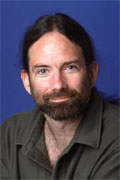Coastal
Coastal Working Group
Introduction
The Coastal Working Group deals with delta, estuary, bays and lagoons, and nearshore challenges.
Its working goals are to:
- Evaluate present knowledge of processes in coastal environments (nearshore, inner shelf, barrier islands, sandy coastlines, rocky coastlines, estuaries, lagoons and marshes, eolian, deltas)— including the human component of those systems (i.e. direct couplings between human manipulations and landscape evolution in deltas and coastlines)—and identify the numerical models presently in use.
- Identify gaps in knowledge and areas where model development is needed—both poorly understood phenomena requiring basic research and exploratory modeling, and better understood systems for which model reliability should be improved.
- Define and address interesting and relevant proof-of-concept questions—questions that require linking together models of different environments, preferably spanning between coastal and terrestrial or marine environments.
- Work with the community to populate the CSDMS model toolkit with models of all sorts, ranging from analytical and simplified numerical models that can be shared with the scientific community in stand-alone form, to numerical models that can be linked to models of other environments, via CSDMS, to allow new sorts of questions to be addressed.
The Coastal and Marine Working Group held a joint meeting on February 25-26, 2009, at the University of Virginia in Charlottesville, VA. (Follow this link for more information)
| Chair | |
|---|---|
| Brad Murray | 
|
| Division of Earth and Ocean Sciences | |
| Duke University | |
| 334 Old Chem, Box 90227 | |
| Durham, NC 27708 | |
| Email: abmurray@duke.edu | |
| Phone: +1-919-681-5069 | |
| Fax:+1 919-684-5833 |
Brad received all his degrees from the University of Minnesota –a BA (Journalism) and a BIS (Science) in 1986, a Masters (Physics) in 1990, and a PhD (Geology) in 1995—and was a postdoc at Scripps Institution of Oceanography until 1998. He is currently Associate Professor of Geomorphology and Coastal Processes at Duke University. Brad studies landscape evolution and pattern formation in a variety of environments, but concentrates these days on the morphodynamics of shallow sea beds, tidal marshes, and sandy and rocky coastlines. Brad uses relatively simple numerical models to explore hypotheses, usually motivated by field observations, about how landscapes in these environments come to be and how they might respond as the climate forcing shifts. Increasingly, this research involves two-way couplings between physical and biological (including human) processes.
Announcements
Missed the last Coastal Working Group meeting of October 26-27th? Please have a look at the the presentation to see what's discussed during the workshop.
Join
Click here to join the group: Join Workinggroup
